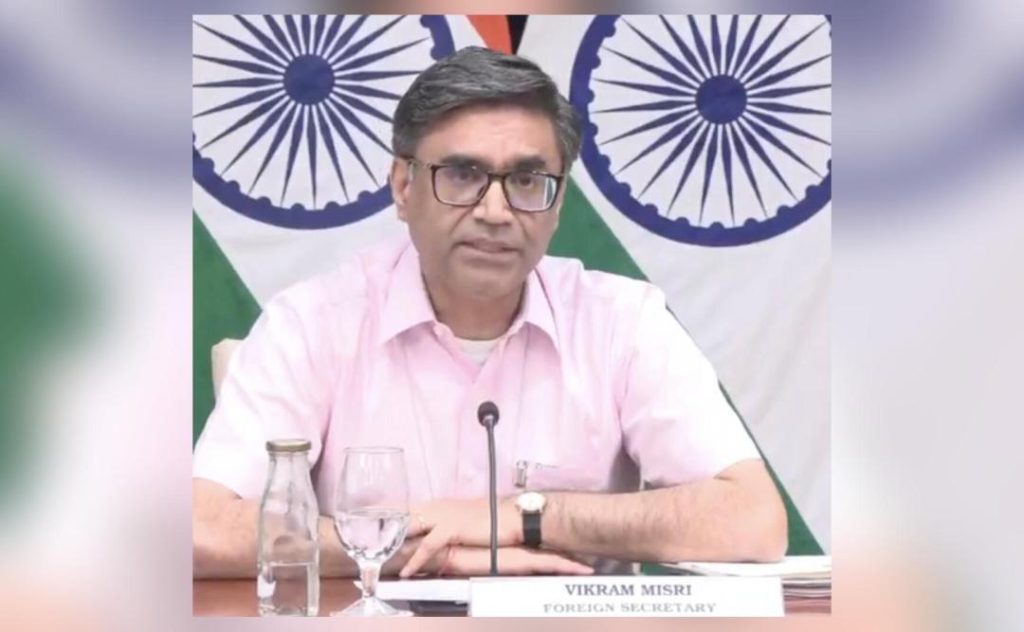
Pakistanis Can’t Travel to India, Those Having SVES Visas Must Leave Within 48 Hrs: MEA
In a significant development, the Ministry of External Affairs (MEA) has announced that Pakistani nationals will no longer be allowed to travel to India under the SAARC Visa Exemption Scheme (SVES). The decision comes in the wake of the recent terror attack in Pahalgam, which has left the Indian government furious and demanding strict measures to ensure the country’s security.
As per the latest updates, the MEA has stated that any SVES visas issued in the past to Pakistani nationals are deemed cancelled. Moreover, any Pakistani national currently in India on an SVES visa has been given a 48-hour deadline to leave the country. The announcement has sent shockwaves across the region, with many questioning the implications of this decision on bilateral ties between India and Pakistan.
The SAARC Visa Exemption Scheme was introduced to facilitate travel between SAARC (South Asian Association for Regional Cooperation) countries, including India, Pakistan, and others. The scheme aimed to promote cultural exchange, tourism, and economic cooperation between the member states. However, the recent terror attack in Pahalgam has forced the Indian government to re-evaluate its security protocols and take stringent measures to prevent such incidents in the future.
The Pahalgam terror attack, which took place on [date], has left several people injured and has sparked widespread outrage across India. The attack has been widely condemned by the Indian government, which has vowed to take all necessary measures to ensure the country’s security. The MEA’s decision to cancel SVES visas for Pakistani nationals and give them a 48-hour deadline to leave the country is seen as a significant step towards achieving this goal.
The move has significant implications for Pakistani nationals who were previously allowed to travel to India under the SVES scheme. Many had been enjoying the benefits of the scheme, which allowed them to travel to India without having to obtain a traditional visa. However, with the cancellation of the scheme, these individuals will now have to apply for a regular visa to enter India, a process that is often time-consuming and bureaucratic.
The MEA’s decision has also sparked concerns about the impact on trade and tourism between India and Pakistan. The two countries have a significant trade relationship, with India being one of Pakistan’s largest trading partners. The cancellation of the SVES scheme could potentially disrupt this trade, which could have significant economic implications for both countries.
Moreover, the decision has also raised questions about the future of bilateral ties between India and Pakistan. The two countries have a complex relationship, marked by periods of tension and cooperation. The cancellation of the SVES scheme is seen as a major setback for the peace process, which has been stalled in recent years.
In response to the MEA’s decision, Pakistani officials have expressed disappointment and frustration. They have emphasized that the cancellation of the SVES scheme is a significant setback for the peace process and has the potential to disrupt trade and tourism between the two countries.
In conclusion, the MEA’s decision to cancel SVES visas for Pakistani nationals and give them a 48-hour deadline to leave India is a significant development in the region. While the decision is seen as a necessary step to ensure India’s security, it also has significant implications for trade and tourism between India and Pakistan. As the two countries navigate this complex situation, it remains to be seen how they will work together to find a solution that balances security concerns with the need for economic cooperation and cultural exchange.
News Source:
https://www.youtube.com/watch
Note: The news source provided is a video link, which may not be accessible for readers. The content of the blog post is based on the information available on the video link and may not be an exact quote or transcript of the video.






